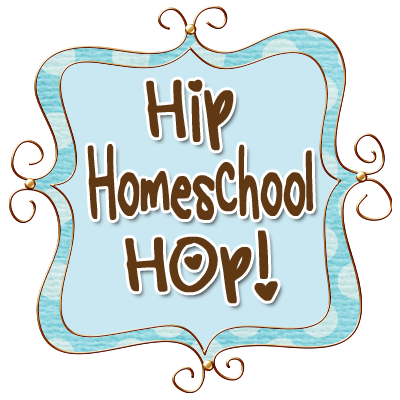I think Charlotte had many things right. She saw through rote, mundane methods of education. She loved children, and saw within each child a unique and curious individual. She loved nature and saw the value of an education that included the study of the natural world. And she believed in the power of great literature.
For her day and age, she was radical. She offered a view of education that was much more enticing and much more valuable than what was being offered at the time. That being said, her day and age was the early 1900’s.
Could one lone educator’s views still be valid today? Haven’t we learned so much more about education by now, that many of her tenants are old news? Haven’t we found ways to improve upon her educational methods? I’m not sure that we have.
Let’s take literature as one example. Charlotte believed that children should learn both facts and fiction from what she called, “living books.” This is a uniquely Charlotte Mason term, which essentially means books that tell things through narrative, and that engage the reader. In short, no textbooks. If any of you have ever tried to read a textbook cover to cover, you will understand where she was coming from. And, yet, over 100 years later, here we are, still requiring children to do much of their learning through textbooks. As though presenting information in dry, detached form is the only way that one can really learn something. As though, we have to suffer through information before we can truly understand it. Rubbish.
As a children’s librarian, I completely agree with Mason on this point. Every good librarian knows that the way to engage a child with reading is to help them find information that is interesting and relevant to them. In a format that attracts them. In essence, help them find “living books.” (In many ways, I feel like this should be a moot point by now. There are so many wonderful, engaging books for children, I wonder that we even publish dry texts any longer. Or that anyone buys them).
Charlotte’s holistic approach to education appeals to me as well. She wanted children to learn about science through being outside – and engaging with the natural world. She wanted children to learn about history through understanding events and people in context. She wanted children to be so engaged in their studies, that the habits they built helped them learn throughout their lives. At least this is how I think of her.
Overall, I believe in the heart of Charlotte Mason education. However, I do think that, her methods offer just one way of doing things. For example, the Charlotte Mason method uses narration as the critical way for children to process new material. Rather than answering questions at the back of a textbook, she wanted children to repeat what they had learned in their own words (narration being the Charlotte Mason form of comprehension questions).
I like this concept. But, I think that it is only one of many techniques that can be helpful to children when learning. For example, children can learn a huge amount by teaching another person what they have just learned. This isn’t narration – exactly. But, it is taking ownership of information (which is, I think, what Mason was getting at). I also think that the more a person is presented with information, in various contexts, the more likely they are to remember and understand it. And, that as a homeschooling parent, I know when my child understands and retains information. I may not have to employ narration to realize it. Nor would my child. A good, real, conversation around a topic might do it (which, I realize, some would consider a form of narration).
So what am I getting at? I think that Charlotte Mason had a very valuable approach to education. One that was particularly useful to the people of her day and age. And I question if the people of today’s day and age are much different.
Which brings me to ask a greater question. How can we continue to think outside the “education” box? Charlotte Mason comes to mind. But, so do many other educators and educational approaches. And, if I am to step outside of the box, I want to be careful not to simply step into another box. In this case, the Charlotte Mason box.
I’m curious, those of you who are Charlotte Mason educators. Do you find her techniques limiting at all? Do you find her structure a welcome addition to your learning environment, or do you ever wish for a bit more freedom? As my family’s home learning journey unfolds, I often consider Charlotte Mason. But, I wonder if her techniques are too structured to allow us the learning freedom that I envision?
I’d love to hear your thoughts.







Let me start by saying . . . we are just beginning our homeschooling journey. Our “school” age kids are only 4 and 5. That being said I love the Charlotte Mason approach for this age. To me, right now it means lots of books and time outside exploring. It means them telling me what we’ve just read.For younger children I feel like this is a perfect learning experience.
As we begin ths journey we also think that we will not follow Charlotte Mason all the way through high school. My kids need to be able to read a text book and take a test successfully, I feel, in order to be prepared for college classes. I do not want them to enter college never touching a boring text book or taking a timed test.
Like you said also, I love the holistic approach. I think it is fascinating how science and histy and math and great artists can all work together {that might just be the unit study lover in me!}
That is just us . . . and that is what is working for us right now!
Thanks so much for your comments, Barb. You are very encouraging. That does sound pretty perfect. I often wonder about the textbook and test thing. I have two degrees, and I have had to take my fair amount of texts. I hate to admit it, but I suppose it is a learned skill. Of course, the best parts of my education (my master’s degree) were untested, and I retained a lot more of that information. Wish more educators / education systems realized that…
My original answer was a blog post itself! LOL! So I think I’ll tuck that in my blog-pocket. We are at the end of our 3rd year of Charlotte Mason. This method FREED us. It freed us from unschooling. It freed my children from the feelings of resentment they had about unschooling and relaxed schooling. It freed me to teach and learn with them. It freed us to enjoy life to the fullest with regards to their education. It freed us to read all we want and what we want. It freed us to relax.
Each day my 8 year old asks, “Do we get to do school today?” and each afternoon is met with “That’s it?” or “Do we have to stop?”
The freedom to learn. No, that’s not limiting. It’s not a box. It’s a wide open world that they never had before the Charlotte Mason method. My current homeschoolers love every day that they have lessons. My grown children wish I’d learned this 20 years sooner and plan to use it with their own children.
I’m not sure what appears “limiting” or over-structured. But I assure you.. it’s the most freeing type of homeschooling we’ve yet to have. And by the way.. Charlotte Mason used textbooks. They were a side dish rather than the entre but she did use them. And so do most CM’ers including us.
Wow! That’s a pretty ringing endorsement. I guess I’ve just heard of the methods and wondered if they’d feel artificial, like I was manufacturing ways to communicate with my kids. Like, getting them to repeat things back to me, instead of just asking them questions and conversing with them. That’s just one example that comes to the top of my head. I haven’t heard much in the way of negative comments from anyone who uses Charlotte Mason, though. Interesting about the textbooks, too.
I’m curious about the resentment your kids felt around unschooling. Was the lack of structure too much for them to handle? I’ve heard this from some unschooling families. That the parents liked it, but the kids wanted a bit more predictability.
I’ll check out your blog for more. Thanks so much for your comments. They’ve definitely made me want to investigate Charlotte Mason more seriously. All the best!
Kelly,
Regarding unschooling, everyone seemed to be “for it”. I mean, I never heard a negative word. They’d previously hated the “school at home” structured way that we started out. And we sort of fell into unschooling. As adults, my heart has unintentionally been pierced repeatedly when I hear things to the affect of them having not been taught. Oh what a mistake it was!! They’re smart; they’re self-thinking; they love learning. So it did achieve my goals. But they apparently view it as a lazy way of homeschooling. It made them feel they weren’t taught. I, too, have heard of teens ranting on their parents and refusing to homeschool their own because of their unschooling experience. My adult children are planning to homeschool… using Charlotte Mason.
I’m in year 13 of homeschooling. My children and I have only enjoyed it for the last 3 years. They enjoyed their lives; their freedom from public school..but not their education. Now they do.
This is so fascinating. Especially to hear from kids on the other side. I’ve read from other unschooled kids who resented their parents for the “education experiment” they felt their parents conducted on them. Others seem empowered by it. Interesting to see that the philosophy worked for you, but with unintended outcomes. Thanks so much for sharing your experiences. I’ll be mulling over them for a good while. Especially your last comments. So glad to hear you all enjoy Charlotte Mason so much. All the best, Kelly.
Love your babywearing photo. You wouldn’t happen to be a crunchy mom would ya? I am
What gave it away?
Oh, no. I don’t find CM style to be constricting. I see it as a broad philosophy that can be applied to all areas of learning. Even narration is not limiting since there are multiple methods of narration besides strict oral or written. Most CM practitioners are not purists; instead we are eclectic, taking what works and modifying what needs adjustment.
Glad to hear it, Jimmie. I really admire the way your schooling works. It looks so enjoyable, and organized, too. I’m glad to hear you say you can take it and use what works. And, the differing methods of narration intrigue me. I guess discussing a subject together (as long the parent listens well), would “count,” too. I know we’ll keep the Charlotte Mason philosophy in mind as we go (at least I will).
In our “No Child Left Untested” world, I think Charlotte Mason is even more radical today! Think how horrified publishers of textbooks and standardized testing would be if her ideas were put today, not to mention politicians and parents who think what a child knows can be boiled down to one number. We wouldn’t need posters on the life cycle of different creatures if preschoolers had spent so much time outdoors that had seen it for themselves.
And don’t get me started on the special needs community. We wouldn’t need to drill and kill language using formal books and programs if we simply had conversations with our children about what they saw outdoors, what they read in a book, what they noticed about a work of art or song, etc.
I do not find Mason’s ideas limiting because she is principle-oriented. When you fully understand her principles, then you can see how to apply them today. You can see how to apply them to children who are not born narrators like my daughter with autism and aphasia. Her principles have not become how I teach my kids, but how I live my life.
Thanks for your comments, Tammy. You’re right, her ideas are pretty radical by today’s standards. And, yet, her principles make so much sense. Funny, isn’t it. I agree, conversation is such a wonderful way to learn (it is how kids learn to talk, after all!). Thanks, too, for your thoughts about principles.
When I think of Charlotte Mason in that way, it seems so much more approachable. It’s less about specific techniques (although she suggests some great ones) and more about principles. Reading this inspires me all over again! Thanks.
We had to adjust, slightly, how we were learning to make sure we were covered in case of school board interference (a strong possibility in this province). That being said, I kept all of what I think are the best aspects of a Charlotte Mason education: nature study, art and music appreciation, narration, and all of the wonderful living books available to stir their imaginations. We see the results every day in our home and I think it is, at least for us, the best possible method of learning because it respects the child as a thinking, intelligent person in their own right.
Curious what province you are in, now? =) I agree with all of the best aspects of Charlotte Mason you mention. There are so many truly wonderful things about the approach – and you named them well. And the respect component is so critical. However we approach education, I think that is the key element. Knowing our little people as real people. Thanks for your thoughts!
I consider myself a CM educator, but I don’t follow her approach religiously. I’ve heard people say you have to do it exactly as she presented it or it doesn’t work, but I don’t agree. I use many aspects of CM, but I adapt them to work for me and for my children. I’ve admitted that I don’t do narration the way she said to do it in one of my blog posts. I felt like I was making a true confession and that I might not be included in the CM blog carnival, but they included my post! I can’t do everything the exact way she said to do it. I didn’t have transportation to get us out to places to do nature study for a long time. I have ten children, so some things are just too difficult to do with everybody. I do what I can. We love to read living books. We are nature lovers and study it each in our own way. We do some artist and composer study. We do pretty much whatever strikes our fancy. And lots of it lines up with what CM said to do. So I would say CM does not have to be limiting at all.
Hi Kelly,
What an interesting post and comments! I’m looking forward to starting my kindergartener in the Charlotte Mason style this fall. I love everything I’ve read about her philosophy so far. One thing that has seemed limiting though, I would like to add more diversity in science experiences for the young ones. It seems like CM focuses just on biology for the first 6 years through nature study. My son is very interested in computers, building, engineering, and physics and my husband and I are planning to use video games and science experiments and magnets, building sets, etc. to provide a more complete science education for him while following all the rest of the CM approach. I am curious what other CM families do in this regard. I have read that Charlotte Mason considered handicrafts (carpentry, sewing, etc.) to be very important skills to learn and that it prepared children for careers. Obviously there weren’t computers back in her day, but I think she would have considered it an important skill for all children to learn if there were. I wonder if people who stick strictly to CM’s original way of teaching miss this.